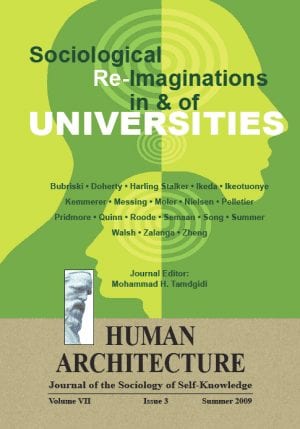Journal Article — The Complexity of Naive Acceptance of Socially Manipulated Beliefs — by Ayan Ahmed
$15.00
This is a paper about self-evaluation and exploration. I struggle to understand myself in relation to my beliefs and how those beliefs were derived from society, parents and teachers as a whole and not through self reflection and education. I strive to recognize the manipulations I suffer through the hands of others in general and through my own self.
Description
Abstract
This is a paper about self-evaluation and exploration. I struggle to understand myself in relation to my beliefs and how those beliefs were derived from society, parents and teachers as a whole and not through self reflection and education. I strive to recognize the manipulations I suffer through the hands of others in general and through my own self. Most importantly, I try to appreciate through the readings (or commentaries) of such scholars and philosophers as Freire, Ghazali, Durkheim, and Gurdjieff the nature of society and how individuals become oppressed by abiding with what others have prescribed—hence becoming “beings for others” as opposed to “beings for themselves.” Finally, I try to lay bare the complexity associated with trying to break free from manipulation and habituation and the irony in which one, having realized manipulation and habituation at the conscious level, is still driven subconsciously to embrace those very conditions one was seeking to avoid.
Recommended Citation
Ahmed, Ayan. 2003/2004. “The Complexity of Naive Acceptance of Socially Manipulated Beliefs.” Pp. 1-9 in Students’ Critical Theories in Applied Settings (Human Architecture: Journal of the Sociology of Self-Knowledge: Volume II, Issue 2, 2003/2004). Belmont, MA: Okcir Press (an imprint of Ahead Publishing House).
The various editions of this issue of Students’ Critical Theories in Applied Settings can be ordered from the Okcir Store and are also available for ordering from all major online bookstores worldwide (such as Amazon, Barnes&Noble, and others).
Read the Above Publication Online
To read the above publication online, you need to be logged in as an OKCIR Library member with a valid access. In that case just click on the large PDF icon below to access the publication. Make sure you refresh your browser page after logging in.








